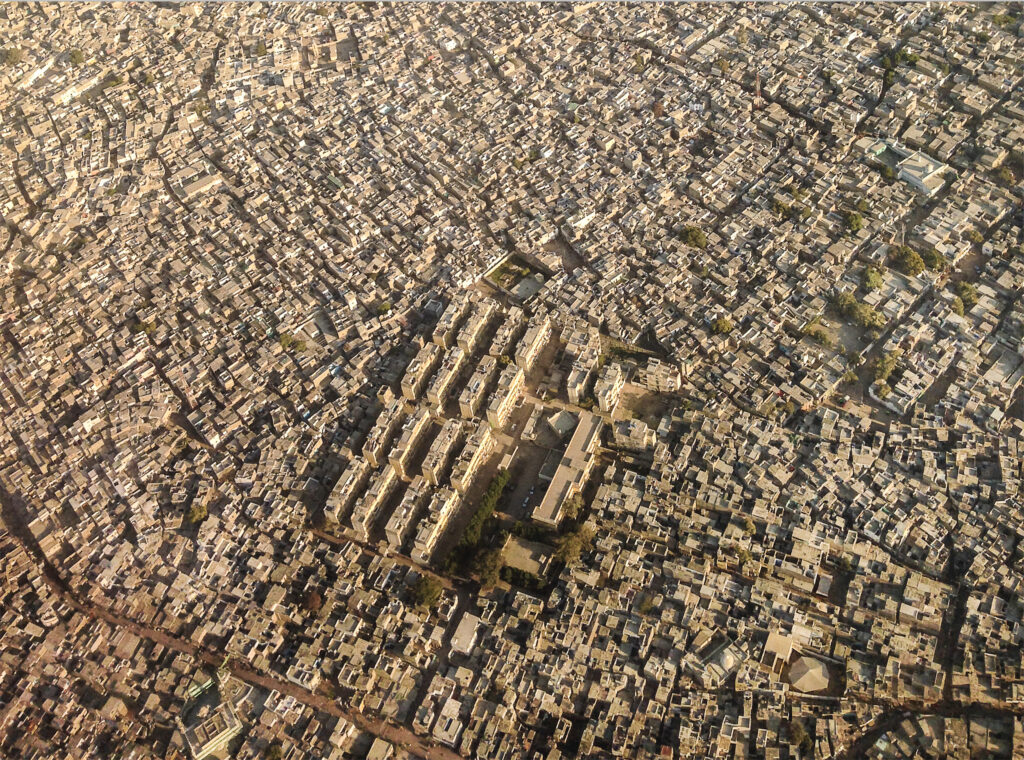Asia Forum Art and Ecologies Roundtables: Organisations
Panel
The Organizations roundtable was moderated by John Tain and Ming Tiampo and was attended by more than 120. The session was held on 5th November, 2024 at Lahore Museum Auditorium. The roundtable was organized to encourage a shift in perspective from viewing environmental issues through rigid organizational structures to a more organic, community-centered approach. The speakers advocated for understanding the interconnectedness between people, the land, and the broader ecosystem, encouraging bottom-up systems that foster sensitivity and deeper relationships. The session concluded by emphasizing the importance of sharing knowledge, increasing awareness, and building sustainable practices in order to adapt to and mitigate environmental challenges.
Below is a summary of the viewpoints shared by the speakers:
Diana Campbell reflected on her work as Artistic Director of the Dhaka Art Summit, she shared her experience of reimagining South Asia’s art scene, moving from Western museum standards to eco-conscious approaches. Campbell advocates recognizing craftspeople as co-creators and connects art with broader societal restoration. For example, her upcoming Bukhara Biennial project, Recipes for Broken Hearts in Uzbekistan, combines historic site restoration with creative collaborations between artists, artisans, and chefs to address social inequities. This integrative, multidisciplinary approach reflects her commitment to fostering inclusive, impactful cultural narratives.
Filipa César shared about her collaboration with communities in Guinea-Bissau, focusing on preserving and reactivating historical archives related to the country’s anti-colonial movement. Her “Mediatheque” project digitized liberation-era films and made them accessible to local communities, blending traditional knowledge with technological innovation. Filipa also shared about the workshops on oral history, art, agriculture, and sound, promoting cultural continuity that her initiative organizes. It also addresses global issues like seed sovereignty, and merging archives with seed banking.
Minaa Haroon was involved in the iteration of Wanwu Council, which was realized with Zheng Bo and Guggenheim Abu Dhabi as part of the LB03 opening weekend. The Wanwu Council is a collaborative initiative originally conceptualized by artist Zheng Bo in 2021. Minaa shared that the Wanwu Council explores how institutions can respond to ecological and non-human concerns. First held at Gropius Bau, Berlin, it involved artists and scientists in activities emphasizing sensitivity to the more-than-human world. The LB03 workshops held in Lahore parks and gardens focused on eco-friendly practices, redesigning art spaces, and fostering dialogues on the inclusion of non-humans in organizations. Minaa reflected that being part of the initiative inspired her to integrate sustainability into the Alhamra Arts Council’s mission and practices.
Nida Rahman and Usman Saeed discussed their collaborative project, Mitti Mazdoori Mahol, centered around the themes of soil, labor, and community engagement. Nida, alongside Hira Nabi, reflected on their year-long exploration of Lahore’s landscapes. The project involved a series of workshops that explored the connections between soil, human activity, and sustainability, bringing together artists, architects, farmers, and others. Saeed highlighted his role in facilitating garden-based workshops, emphasizing hands-on learning and the transformative power of soil. Their work resists traditional institutional frameworks, aiming instead for an organic, evolving community-driven process.
The Asia Forum for the Contemporary Art of Global Asias organized four (4) roundtables during the Climate Congress to initiate a discourse on the role of arts in the environment. The panelists shared the way their work with communities, organizations, land use practices and publications relate to ecologies and sustainable futures. The discussions explored how their work relates to human or more than human factions, and how they understand the natural environment from their perspective. Conceived by Annie Jael Kwan in 2021/22, Asia Forum provides opportunities for sustained dialogue on contemporary issues and artistic practices in Asia.
Guest of Honor:
We were honored to have Mr. Farid Ahmad Tarar, Secretary Tourism Archaeology and Museum Department, Government of the Punjab at the second Roundtable session on 5th November 2024. In his speech, he emphasized the global urgency of addressing climate change, describing it as an exponential threat affecting humanity worldwide. He outlined the various manifestations of climate change, including rising temperatures, extreme weather events, melting ice caps, and biodiversity loss. Mr. Tarar stressed that many societies remain unaware of the full intensity of these impacts. He called for collective action to mitigate climate change, urging individuals, societies, and nations to reduce greenhouse gas emissions. He highlighted Pakistan’s role in advocating for the third-world countries affected by climate change, despite their minimal contribution to its causes.
Location: Lahore Museum Auditorium
Date: November 5

